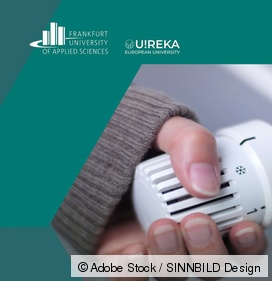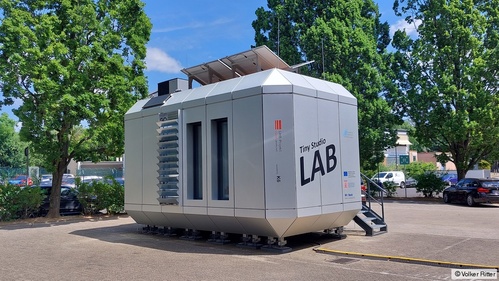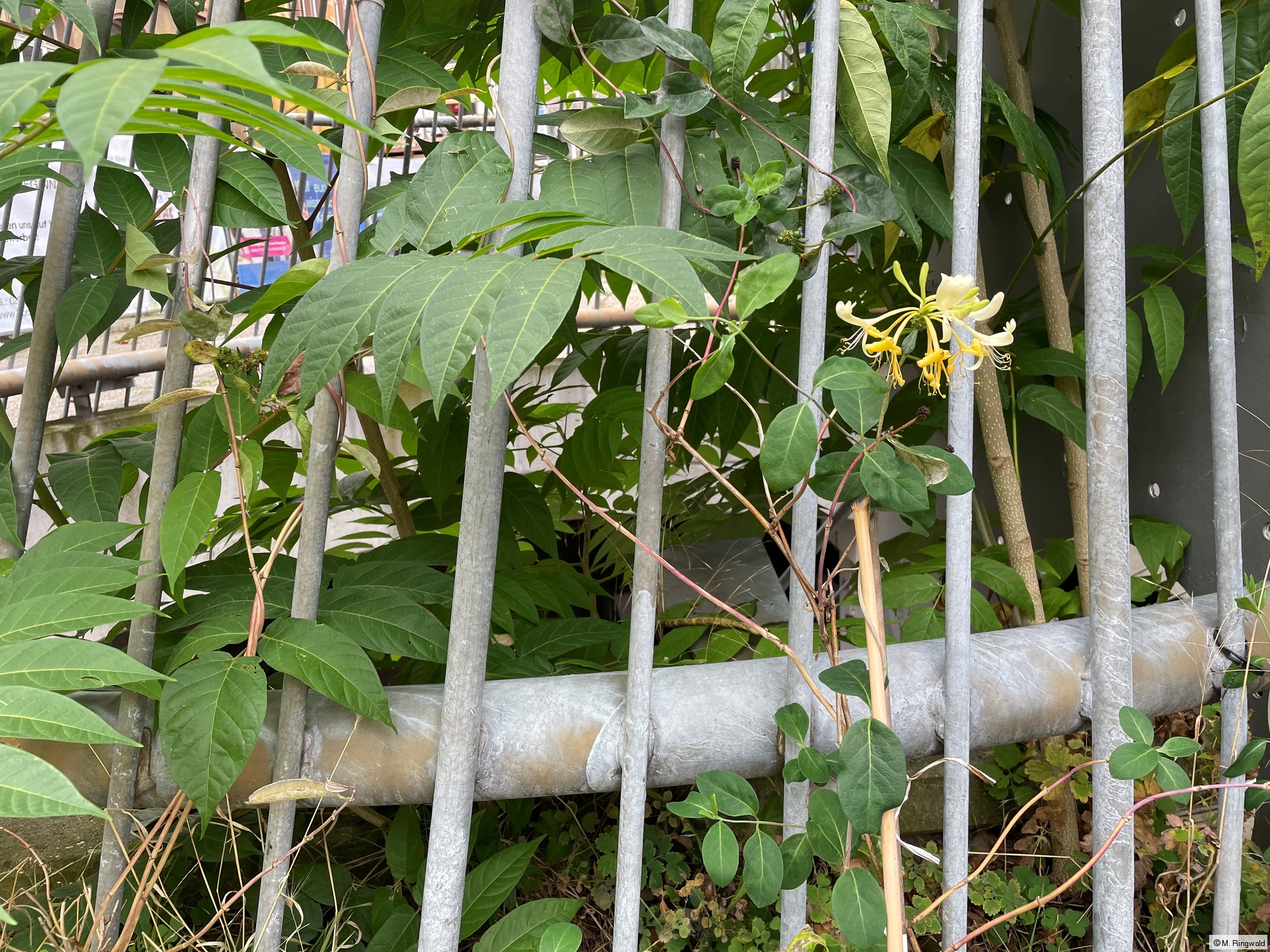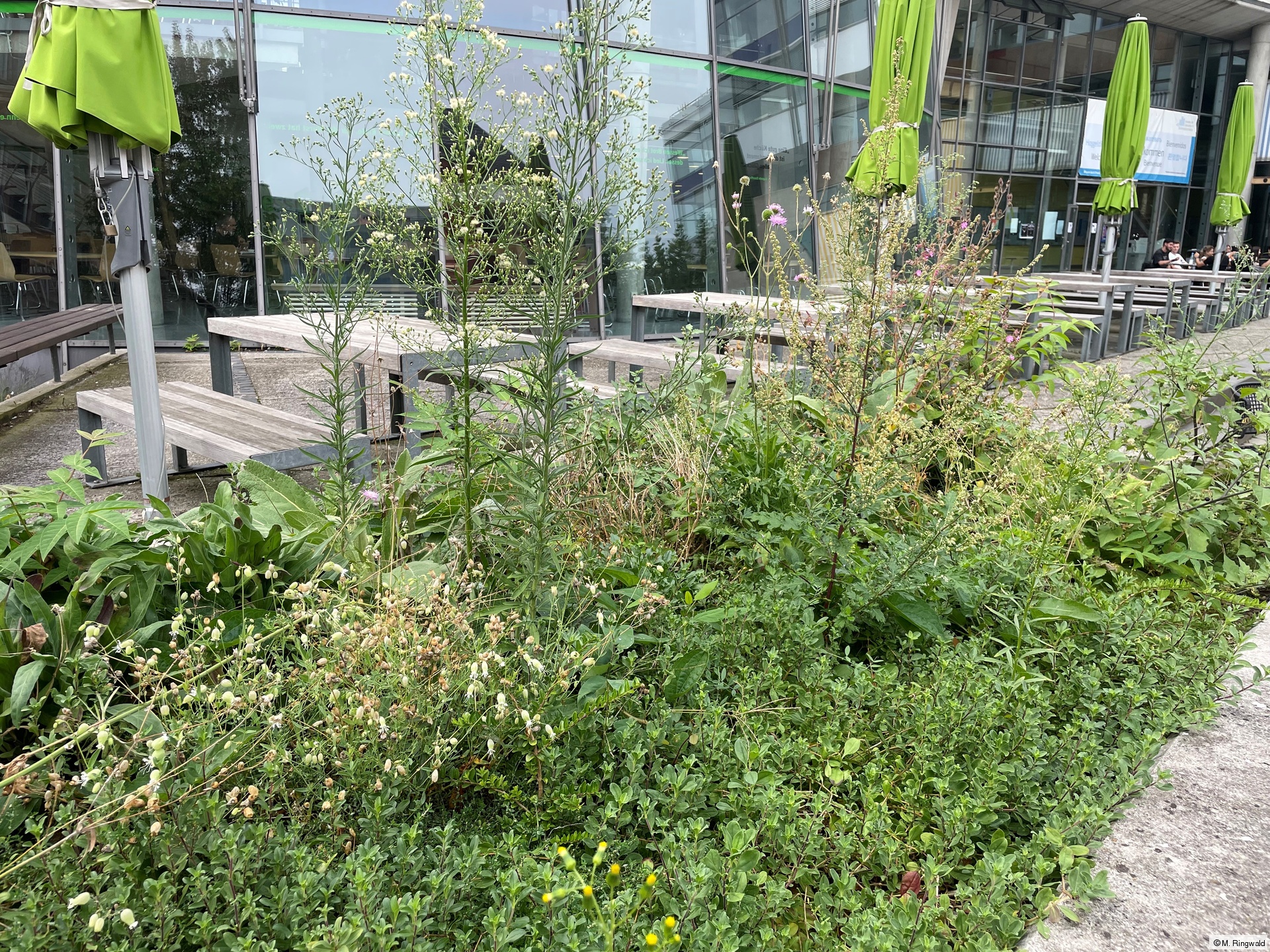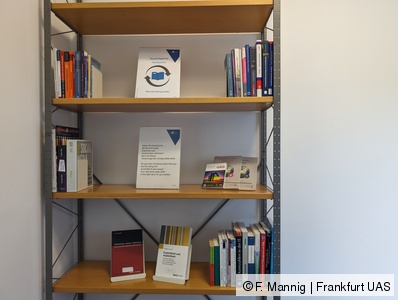Sustainability Office | Strategy | Sustainability Council | Sustainability professors | VisibleN | Activities on Campus | Events | Bee sponsorship
Activities on Campus
The campus of Frankfurt University of Applied Sciences at Nibelungenplatz 1 is to be redesigned and unsealed in stages over the next few years. Issues such as climate resilience, biodiversity, accessibility, and improved quality of life play a very important role in this process. The university's open space is a heavily used area, which must be taken into account in the design, as must the maintenance intensity of the green spaces. The redesign is intended to make the campus more inviting and promote better networking between science and urban society – so that students, staff, teachers, but also guests and residents feel comfortable there.
An external planning office is currently working with a steering group from the university to develop an overall concept. In January 2026, there will be a participation process in which university members can submit their needs and suggestions.
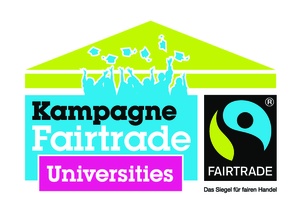
Frankfurt UAS has been the official title holder since the end of January 2022. The university was the first among the universities in Hesse to adopt its own sustainability strategy and is now also the first in Hesse to be allowed to call itself a Fairtrade University.
For more information (in German): Fairtrade University
Act Sustainably: Use Energy Wisely – Reduce CO₂
Especially during the cold season, small actions make a big difference. Lowering the room temperature by just 1 °C can save around 6% heating energy!
Efficient Heating Tips:
- Keep radiators clear: Avoid furniture or curtains blocking heat.
- Moderate temperatures: Set office thermostats to level 3 (approx. 20 °C); heat hallways only minimally.
- Don’t turn up to max: High thermostat settings don’t heat faster – they just waste energy.
- Before leaving: Turn down thermostats and close windows – especially before weekends or holidays.
Smart Ventilation:
- Skip tilted windows! Instead, air out briefly 3× a day with heating turned off.
Easy Power-Saving Habits:
- Switch off the lights when leaving the room.
- Turn off devices completely instead of using standby mode.
- Use the kettle only as needed.
- Run the dishwasher only when fully loaded.
- Set the fridge 1 °C warmer (within the recommended food safety range) to save up to 7% electricity.
Thank you for helping us save energy and reduce CO₂!
The Tiny-Studio-Lab is a REACT-EU /EFRE project funded by the European Union. From April 2023, the Tiny-Studio-Lab has made it possible to test concepts and prototypes from research and development for buildings on a 1:1 scale under real conditions. This test building also offers the opportunity to show systems and components in operation and for students to try out new ideas together. The Tiny Studio Lab thus promotes the more sustainable planning, construction and operation of buildings and provides an environment for experiments and new developments that can also be transferred to university operations and campus development.
The building's facade elements will be interchangeable so that new wall structures can be tested regarding different criteria. For example, it is planned to test a module with facade-integrated ventilation and a module with a green facade combined with PV elements. In addition to cooling and ventilation, light and acoustics will also be analysed. A reversible air-to-water heat pump, an air-conditioning system and a PV system as well as sophisticated measurement technology are integrated into the building.
For more information (in German): Tiny-Studio-Lab.

In order to increase biodiversity on campus, several bee colonies were established on the campus of Frankfurt University of Applied Sciences in June 2021. Bees, along with many other species, are important for the existence of ecosystems on our planet because they pollinate a large proportion of plants.
The idea for establishing the bee colonies was submitted as part of the company suggestion scheme and won an award. The search for a suitable location was carried out as part of the Interdisciplinary General Studies (!SG) as a project on the cross-cutting topic of sustainability. Colleagues from Facility Services, the safety officers and the people who submitted the proposal supported the team in choosing the location. The project was funded by the Förderverein der Frankfurt UAS e.V. Many thanks to everyone involved!
A green roof on building 4 of Frankfurt UAS was chosen as the location. The bees can be observed from the stairwell of Building 4 from the 2nd floor.
The raised bed in front of the cafeteria and the bed on the side of the children's house will soon be richly laid for pigeon-tails, blood droplets and co. The planting campaign is part of the "Nectar Bar" project to save the biodiversity of day and night butterflies, which won the 1st Frankfurt Biodiversity Ideas Competition. Our university was able to initiate a cooperation here, so that in April 2024 the graduate biologist and botanist Monika Peukert and Christoph Schuch, Managing Director of Landschaftspflegeverband Main-Taunus e.V. and founder of the Herbs & Wild Perennials department at the Hattersheim Schlockerhof of EVIM Behindertenhilfe, personally came to the campus with large containers for "Nektar-Bar" and spent a day planting around 280 moth-friendly wild perennials - robust, native plants such as dost (also known as wild marjoram), silverleaf, night violet or nettle, which are a welcome source of food for moths and cope well with heat and drought. In May, the underground car park light well was also planted with climbing plants.
For more information on the Nectar Bar project (in German): https://nektar-bar.de/
Since June 2024, the library has been providing an exchange shelf for academic books from all disciplines. It is located in the passageway between the counter area and the checkroom. There you can hand in textbooks and reference books that you no longer need and browse for new relevant ones. Just drop by!


